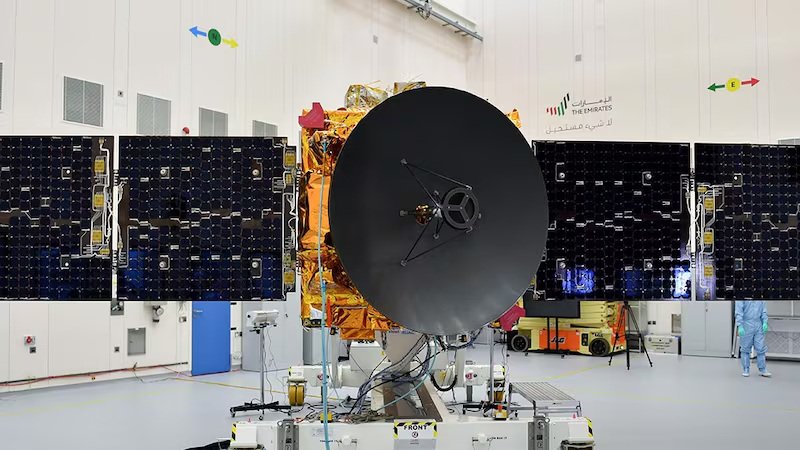In a significant stride for the United Arab Emirates’ (UAE) space ambitions, researchers in Abu Dhabi have successfully designed, built, and test-fired a liquid rocket engine. This achievement not only underscores the nation’s growing capabilities in space technology but also positions it as a potential contributor to future Mars missions.
Introduction
The recent test-firing of a 250-newton liquid rocket engine by the Technology Innovation Institute (TII) in Abu Dhabi marks a pivotal moment in the UAE’s space exploration journey. This development aligns with the nation’s broader vision to enhance its presence in the global space community and contribute to interplanetary missions, including those targeting Mars.
The Engine’s Design and Development
Over a 12-month period, a team of engineers and researchers at TII meticulously designed and constructed the liquid rocket engine. The project faced several challenges, primarily due to the lack of specialized testing infrastructure in the region. Dr. Elias Tsoutsanis, the chief researcher at TII, highlighted the complexities involved in developing the necessary facilities, such as cold flow benches and hot-fire test infrastructure, to validate critical components like injectors, combustion chambers, and ignition systems.

Technical Specifications and Capabilities
The 250-newton liquid rocket engine is designed to be versatile, with potential applications ranging from powering satellites to enabling lunar landings and future Mars missions. Its compact size and efficient performance make it a suitable candidate for various space exploration endeavors.

Overcoming Challenges in Testing
One of the significant hurdles faced during the development was the absence of specialized test infrastructure in the UAE. To address this, the team at TII had to innovate and adapt existing facilities to meet the stringent requirements for testing the rocket engine. This adaptability not only facilitated the successful test-firing but also demonstrated the team’s resourcefulness and commitment to advancing space technology in the region.

Implications for Future Mars Missions
While the immediate applications of the liquid rocket engine are focused on satellite propulsion and lunar exploration, its successful development lays the groundwork for future Mars missions. The engine’s design principles and performance metrics can be scaled and adapted to meet the specific demands of interplanetary travel, contributing to the UAE’s aspirations to participate in Mars exploration initiatives.
Strategic Importance for the UAE
This achievement is a testament to the UAE’s strategic focus on becoming a regional hub for space technology and innovation. By investing in research and development, the nation is not only advancing its capabilities but also positioning itself as a valuable partner in international space exploration efforts.
Collaboration and Knowledge Sharing
The success of this project underscores the importance of collaboration and knowledge sharing in the field of space exploration. The UAE’s partnerships with international space agencies and research institutions have been instrumental in accelerating its space endeavors. Moving forward, continued collaboration will be essential in tackling the complex challenges associated with interplanetary missions.

Looking Ahead
As the UAE continues to build on this momentum, the focus will shift towards scaling the technology for more ambitious missions. The lessons learned from the development and testing of the liquid rocket engine will inform future projects, ensuring that the UAE remains at the forefront of space exploration in the region.
Conclusion
The successful test-firing of the liquid rocket engine in Abu Dhabi is a significant milestone in the UAE’s space exploration journey. It not only demonstrates the nation’s growing capabilities in space technology but also sets the stage for future contributions to Mars missions. With continued investment in research and development, the UAE is poised to play a pivotal role in the next era of space exploration.
Do follow UAE Stories on Instagram
Read Next – UAE Banks Phase Out OTPs by 2025: What You Need to Know












